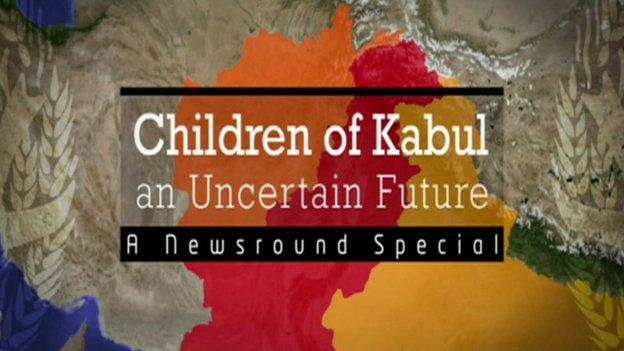Afghanistan: What's life like for families in the country now?
- Published
- comments
Afghanistan: What's life like for children there now?
Experts are warning that Afghanistan is facing a humanitarian crisis this winter.
It follows US and UK troops leaving the country in August this year, after years of conflict.
BBC reporter John Simpson was there then - and now the Taliban are back in charge - he's returned to the country to see what things are like for Afghan families who live there now.
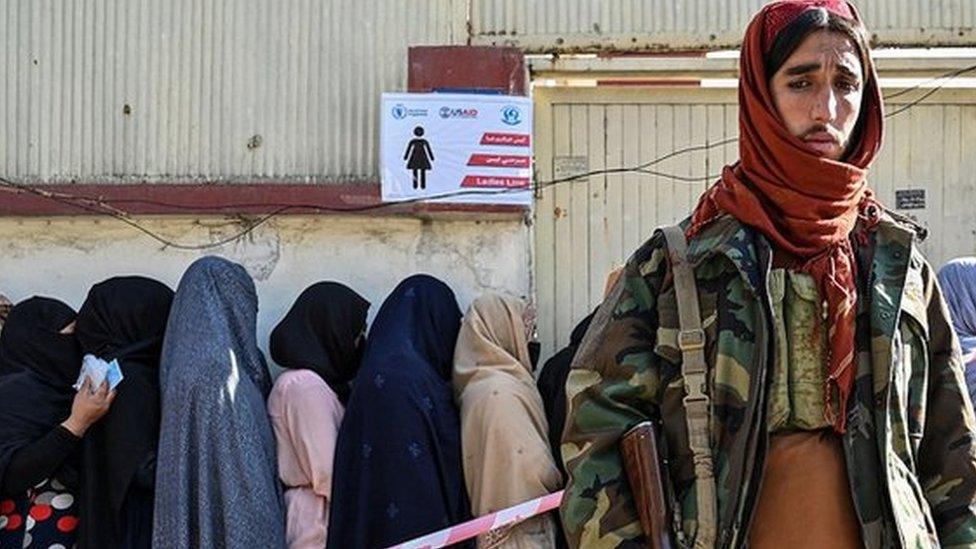
A Taliban fighter stands guard as women queue for food supplies in Kabul
What has been happening recently?
When US President Joe Biden withdrew US troops - the last foreign troops in Afghanistan - over the summer, the Afghanistan government collapsed and a military group called the Taliban took back control of the country again.
Their return to thousands of people fleeing the country, families going into hiding and countries such as America and the UK withdrawing funding from the country which has meant the economy is suffering.
"The Taliban have absolutely no control over the economy, which has just collapsed. That means that nobody has got any money," John explains.
One of BBC's most famous reporters, John has worked at the BBC for over 50 years.
In that time, he has reported from more than 120 countries, including thirty war zones and interviewed many world leaders.
Why are people worried?
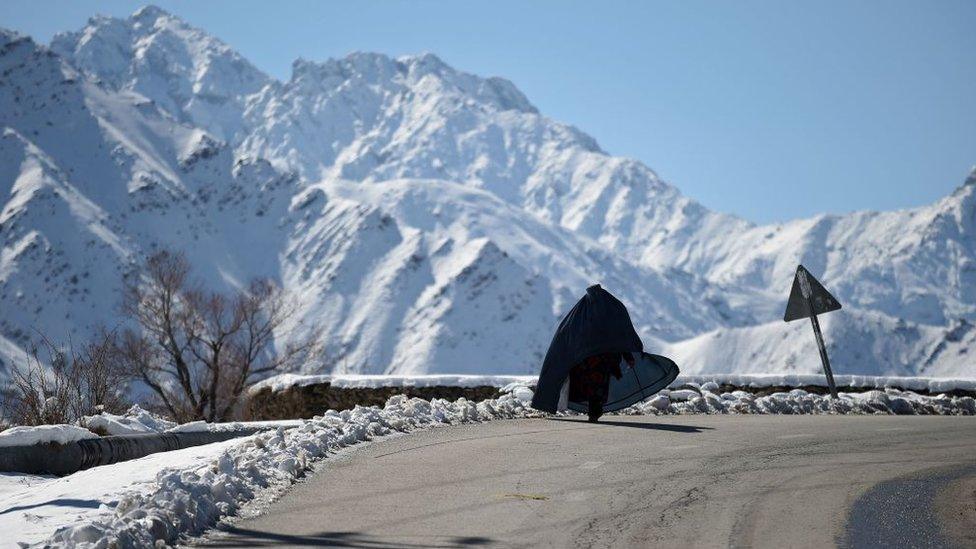
Winters in Afghanistan can be very cold
With the economy in a bad way and little money around, many people have not been paid salaries for months and that has meant many children and their families do not have enough food to eat and the winter months could make things worse.
"Ninety-five percent of the people don't have enough food, and now we're looking at 23 million people marching towards starvation," said David Beasley from the World Food Programme (WFP), a part of the United Nations (UN) giving out food in the country - which is now increasing supplies to Afghanistan to help millions people.
John says it could be a very tough time for many families. "There is no cash to buy food". He adds that nobody knows whether they're going to be able to buy food or supplies to get through the winter and that there's a lot of fear around.
What is life like for children in Afghanistan?
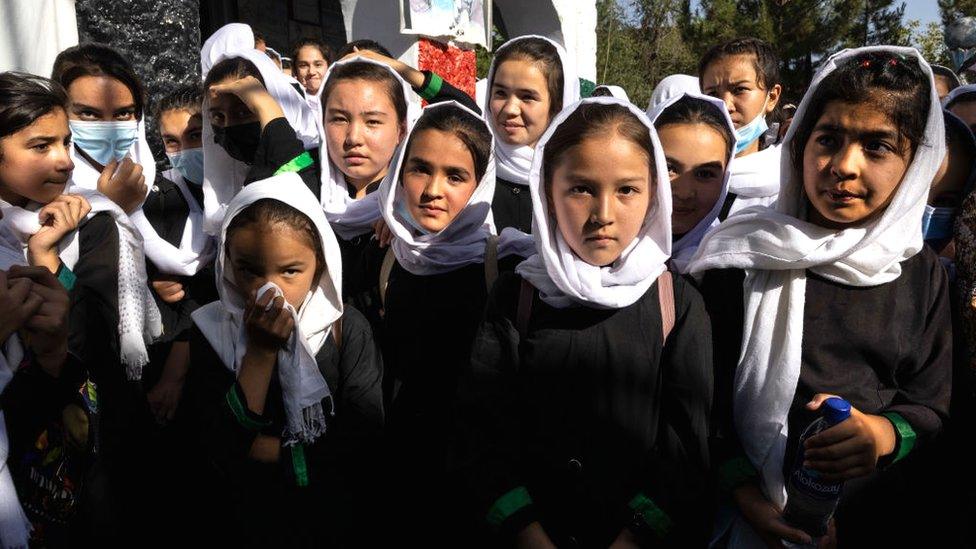
The Taliban follow an extreme version of Islamic code and when they were last in power in Afghanistan - between 1996 to 2001 - they enforced strict rules which meant that women and girls couldn't do a lot of things, such as go to school or go to work with some being punished for breaking those rules.
But when the Taliban lost control of the country in 2001, girls were able to get an education at school, study at university and work and women were able to work and to take on senior roles like judges and politicians in Parliament.
Many people were worried that when the Taliban came back this year they bring those strict rules back in.
However John has seen some positive signs in the country. "Schools are pretty much full and although you hear that the Taliban are stopping girls going to school... that isn't happening this time. In fact, the Taliban are just keeping entirely quiet," he says.
If you cannot see anything, click here.
Why are many foreign countries not helping Afghanistan at the moment?
Usually when poorer countries are struggling financially, wealthy governments step in to help feed the citizens.
Foreign countries think that the best way to make the Taliban behave better is to cut off the money to them.
"The trouble is that it's ordinary people that suffer from this. Parents simply don't have the cash to buy food for their kids", John explains.
Although he adds that countries will look again at this decision and see if they should change their minds.
- Published17 August 2021
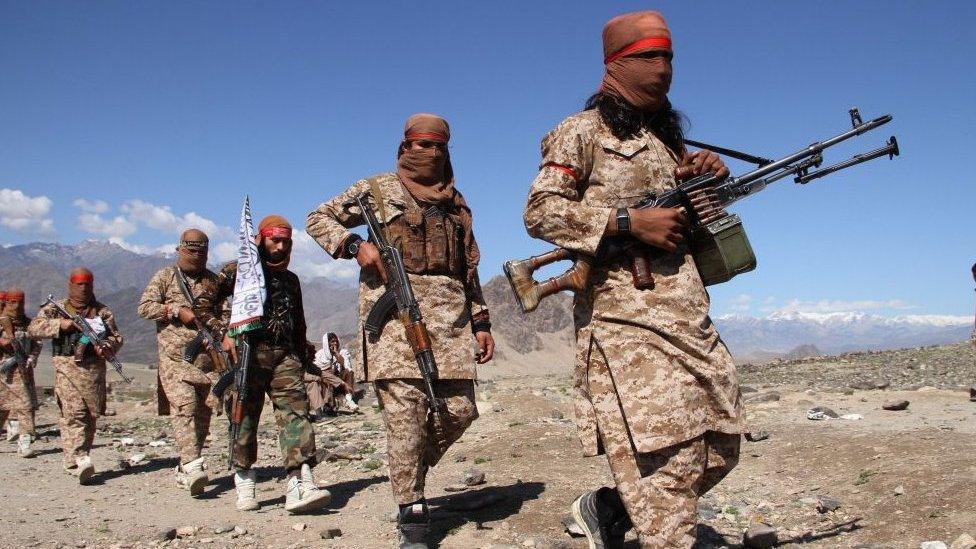
- Published9 November 2021
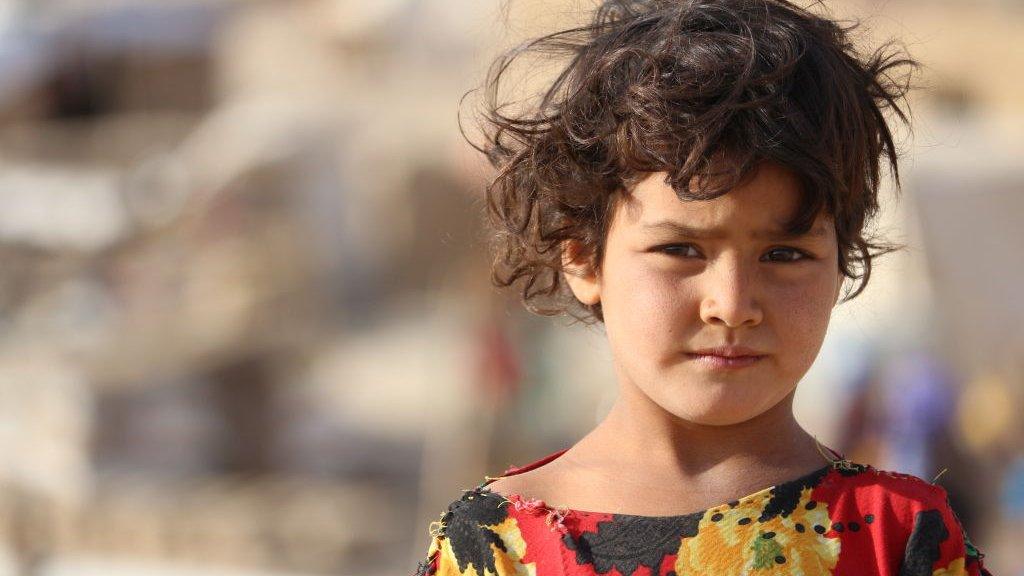
- Published25 March 2014
